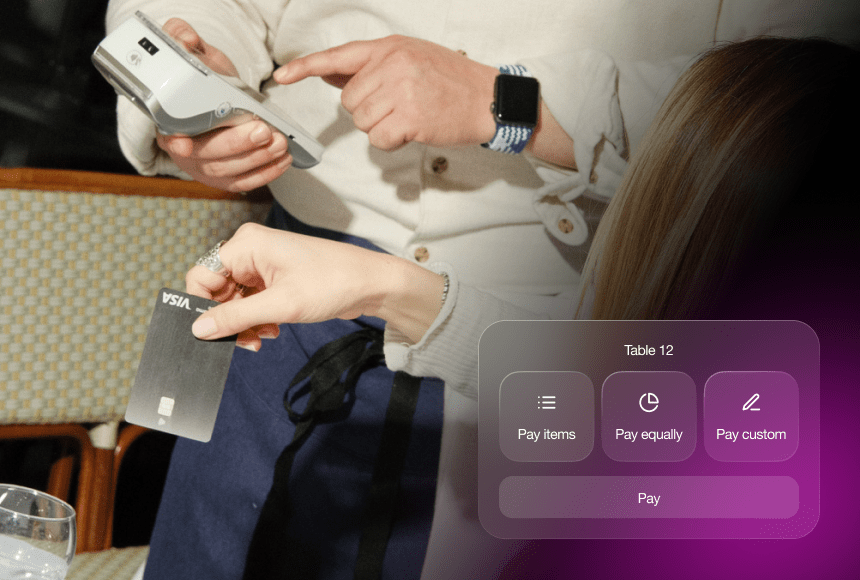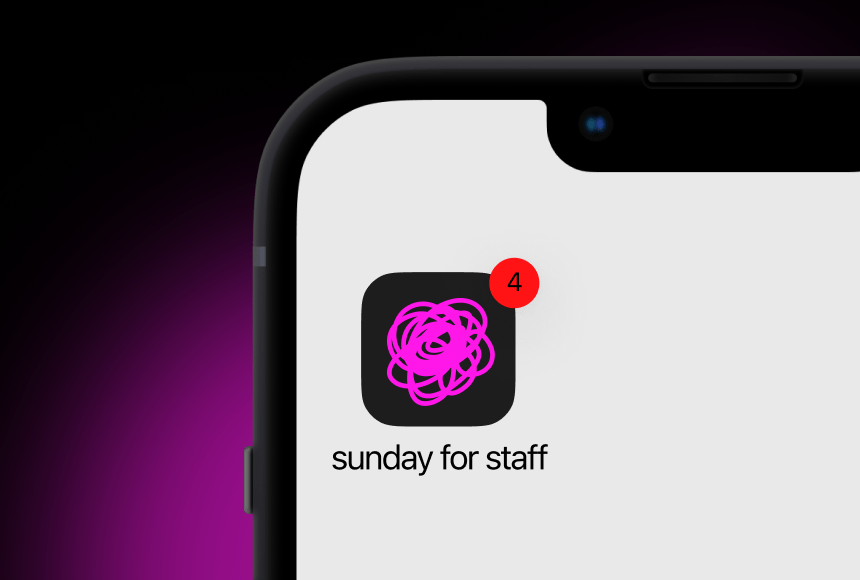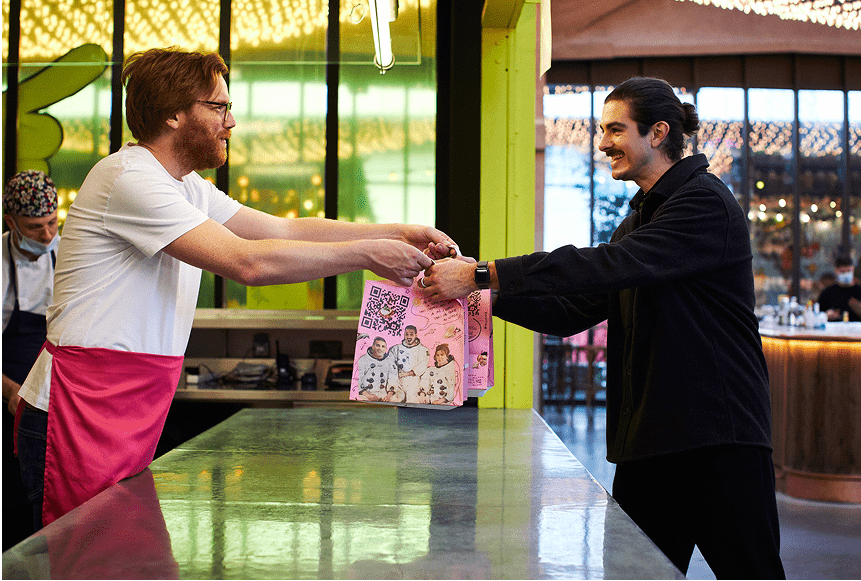
Shaping the Future Image of Your Restaurant
Why 2025 Is a Key Milestone
Standing out in the restaurant world has always been a challenge, especially when flavours and experiences become ever more inventive. By 2025, however, the competition will reach new heights, fuelled by shifting social expectations, technological advancements, and a strong digital culture. Diners will no longer just compare the quality of your menu—they will consider your online reviews, community presence, and ethical credentials as vital components of your overall reputation.
As a restaurant owner, your key focus might be to serve the best fish and chips or present a top-notch Sunday roast. But think about what patrons truly see before they decide to book a table. Is it your seasonal menu, or do they look at your customer ratings on popular review platforms? What about the ease of paying the bill? Restaurant reputation is not just about cuisine—it’s a mosaic of online visibility, personal recommendations, service quality, and brand values. By 2025, how you respond to these changing priorities will define whether your place is buzzing or struggling.
In this article, we’ll explore the key factors that will matter most to diners in 2025. From the power of online reviews to the influence of payment flexibility, we’ll guide you through practical strategies to shape a shining restaurant reputation that resonates with customers—and keeps them talking about you for all the right reasons.
New Dimensions of Trust: Beyond Food Quality
Not long ago, restaurants could rely on taste alone to attract devoted patrons. In 2025, that’s no longer enough. Diners want to know the story behind every dish, whether ingredients are sustainably sourced, and how well the staff is treated. They expect not only a satisfying meal but also a holistic experience that aligns with their values.
A recent OpenTable survey discovered that the modern diner looks for a sense of authenticity in the restaurant scene. What does that mean in practice? It could be the transparency in your supply chain, creative efforts to reduce food waste, or the way you adapt your menu to cater for different dietary requirements—without making anyone feel like an afterthought.
This shift toward a broader notion of trust is critical. When patrons feel they can trust how you source and prep your food, manage your staff, and engage with your local community, they are more likely to become loyal guests—returning not just for the taste, but for the principles you stand for.
The Digital Footprint: Reviews and Online Presence
Life happens increasingly online, and so does your reputation. By 2025, diners will research your establishment the moment they think about grabbing a bite. From local roast dinners to pan-Asian street-food pop-ups, online reviews are among the first resources people check. And it goes beyond just the star ratings: diners will read through comments to see if the service is friendly, if the atmosphere is right for a date or a family meal, and whether your location offers fast, hassle-free payments.
According to a recent industry report, about 88% of people say they trust online reviews as much as personal recommendations. By 2025, that statistic could be even higher, as tech-savvy Generation Z moves into the prime dining-out demographic. If your restaurant’s online presence feels disjointed—or worse, if you have no digital footprint at all—diners may swipe left and look elsewhere.
So where should you focus your digital energy?
- Google Business Profile: Keep contact details, opening times, and photos updated, and encourage customers to leave genuine reviews.
- Social Media Engagement: Share menu updates, behind-the-scenes videos, and daily specials. Promptly respond to messages and comments.
- Review Platforms: Encourage satisfied patrons to leave feedback on major sites. Consider politely inviting them to share their take on the experience or highlight a special touch they appreciated.
- Interactive Website: Invest in a user-friendly website that reflects your brand identity. Make sure it’s mobile-friendly, as many customers research restaurants on their phones.
A healthy online presence helps you keep a direct line of communication with your guests, address concerns before they escalate, and accurately represent what you offer.
Technology to Streamline (Not Sabotage) the Experience
The modern diner expects convenience, but nobody wants a flashy tech tool that creates bottlenecks or confusion. As you brace for 2025, consider leveraging technology in ways that boost operational efficiency while preserving that all-important human touch. From advanced reservation systems to online ordering platforms, the question is: how can your chosen tools serve the diner’s experience, rather than overshadow it?
Take self-ordering solutions, for instance: For some restaurants, a mobile ordering app or a digital kiosk can speed up queues and reduce labour costs. But does it remove a friendly point of contact your patrons enjoy? Similarly, if you opt for in-app promotions or loyalty programmes, ensure they feel enticing, not invasive.
One significant leap is the rise of QR code-based payment systems, like those offered by companies such as sunday. It’s straightforward, user-friendly, and eliminates the frustration of waiting for the bill. Simply scan, tip, and leave a review if desired—all in one go. It’s quick, secure, and keeps the dining experience fluid. When well-implemented, such digital tools will enhance your restaurant’s reputation for being forward-thinking yet customer-centric, helping your establishment stand out in the competitive market.
The Value of Personalisation and Connection
When it comes to individual diners in 2025, personalisation is queen. In other words, your customers want to feel you’ve taken note of their preferences—be it allergen information, favourite dishes, or a preference for the corner table. Personal, meaningful gestures can dramatically elevate your reputation.
Whether it’s a small birthday dessert plate on the house or simply remembering someone’s name, these details become social media gold. People enjoy sharing moments where they felt valued and known. On the operational side, you have plenty of avenues for building those personal connections—digital reservation systems can keep track of returning guests’ preferences, giving your staff a heads-up that a vegan diner is returning, or that a particular family loves quiet seating near the window.
Psychologically, modern diners see these gestures as a sign of respect: “Vous matter to us” is the underlying message. Even if you don’t speak those words explicitly, consistent personal touches convey deeper care. By 2025, ignoring personalisation could mean overlooking one of your most effective reputation boosters.
Ethical and Sustainable Practices: The Bigger Picture
2025 will intensify the focus on sustainability and social responsibility. With climate change headlines and ethical debates high on the global agenda, diners scrutinise your restaurant’s environmental footprint. Are you minimising plastic waste? Are you sourcing meat and fish responsibly? Do you treat your team well, paying fair wages?
These questions extend beyond the menu. They involve a holistic approach:
- Responsible Sourcing: Partner with farmers who practise ethical agriculture and fish suppliers who follow sustainable quotas.
- Waste Reduction: Introduce composting and recycling programmes. Find creative ways to use surplus ingredients—like turning leftover rind into zesty jams.
- Energy Efficiency: Switch to energy-efficient kitchen equipment, install LED lighting, and train staff to conserve energy where possible.
- Community Engagement: Sponsor local events, participate in charitable initiatives, or support nearby schools with cooking classes.
Beyond feeling good for doing the right thing, investing in ethics and sustainability boosts your brand image in the eyes of diners. They’re more likely to recommend a restaurant that aligns with their personal values, making your green initiatives a powerful differentiator in a crowded marketplace.
The Seamless Payment Experience
The days of fumbling for cash or waiting endlessly for the bill are drawing to a close. As technology evolves, diners increasingly expect a swift payment experience that does not interrupt the flow of your restaurant. This trend will only intensify by 2025, influencing how guests perceive your overall hospitality.
Look for flexible payment options that allow customers to pay at their own pace—from contactless card readers to QR code solutions. The faster and more convenient the process, the better the final impression. And a positive final impression helps your restaurant’s reputation bloom. After all, a struggle to split a bill among friends is a story that will spread for all the wrong reasons.
Electronic tipping options also tie into your image, especially if you make the tipping process polite and transparent. Some advanced payment systems let diners select their tip amount quickly without the awkwardness of rummaging through a wallet for loose change. This helps front-of-house staff feel appreciated while creating a modernised, frictionless experience for your guests.
Responding to Feedback: social media and Review Platforms
As the saying goes, “A complaint is a gift.” In 2025, this adage will prove more relevant than ever, especially as consumers feel increasingly at ease sharing both compliments and critiques on social media. Whether someone raves about your fancy dessert or laments a slow service night, how you handle these comments shapes your standing in the public eye.
Some tips for dealing with feedback effectively:
- Stay Proactive: Monitor mentions, check online review sites regularly, and keep an eye on your social media messages.
- Respond Promptly: Don’t let negative reviews linger without an answer. Offer a constructive, empathetic response, and invite the diner to continue the conversation privately if necessary.
- Celebrate Positive Reviews: Show gratitude for compliments. This reminds people you care about their input—and that you appreciate every guest.
- Learn and Evolve: Approach negative feedback with humility. A well-handled complaint can turn an unhappy customer into a long-term fan.
So, consider training your team (or dedicating a staff member) to handle online interactions. Done right, a thoughtful reply can stand out amid a sea of generic or robotic responses. Over time, this practice builds a direct connection with your dining community, cultivating trust and, ultimately, a strengthened reputation.
Atmosphere and Service: Human Interaction Still Reigns
Even as the restaurant world goes increasingly digital, you can’t overlook the human element. By 2025, diners will be craving lively settings that marry technology and personalised service. While automation can help expedite tasks, your front-of-house team is still your most powerful channel for genuine engagement. They’re the smiling faces that greet diners, the personalities that recommend the daily special, and the friendly experts who clarify allergens or portion sizes.
A warm, attentive approach remains indispensable. Human interaction tends to resonate deeper than any digital feature, no matter how cutting-edge. Guests will remember that staff member who set them at ease more than they’ll recall the software that booked their table. Therefore, it’s essential to ensure your employees feel confident, valued, and well-trained. Your hiring, onboarding, and continuous training programmes will shine through in the service you offer.
Additionally, consider how your restaurant’s ambiance plays a role in your reputation. From décor to music volume and lighting, everything sets the stage for a memorable experience. By 2025, you may see more owners investing in immersive setups—like local artwork displays or calm garden seating—that involve diners in a story rather than just serving them a meal.
Using Data Wisely: From Insights to Action
The phrase “data is the new oil” has been around for a while, but how does it apply to a restaurant in 2025? More than ever, you’ll have tools to collect, analyse, and use insights from customer bookings, online ordering trends, staff performance, or even foot traffic patterns. Yet data is only as useful as the decisions informed by it.
Which dishes are most popular on Tuesdays? Do you see a steady drop in bookings when it rains? Is there an uptick in negative reviews connected to a specific shift? By gathering this sort of information, you can uncover patterns that direct you to meaningful improvements. Maybe you’ll decide to schedule your top bartender on busier nights or add a vegan version of a classic favourite for more inclusive dining.
Modern reservation and payment platforms often incorporate built-in analytics, saving you hours of guesswork. If a dish is consistently rated below average, adjust it. If many loyal customers are skipping dessert, perhaps you can launch a mini dessert tasting. The key is to remain adaptable and put real thought into addressing the patterns the data reveal, demonstrating to all your diners that you value their experience.
Case Study: The Hudson’s Horizon
To bring these ideas to life, let’s follow a fictional London-based restaurant, “The Hudson’s Horizon”. Having opened its doors in 2018, the restaurant quickly gained local fame for its inventive British cuisine, featuring top-notch produce from regional farmers. By 2020, The Hudson’s Horizon had a steady following, but they found themselves juggling the usual challenges:
- Rising competition in a bustling city
- An inconsistent approach to online engagement
- Occasional payment bottlenecks during peak dinner rush
- Limited attention to ecological impact and brand storytelling
Fast-forward to 2025: They pivoted towards a more holistic focus on their reputation, guided by the insights we’ve discussed. Here’s what they did:
- Revamped Digital Presence: They enlisted a part-time social media manager to regularly post daily specials, staff introductions, and behind-the-scenes glimpses in the kitchen. They also installed a dynamic review widget on their website so visitors could see fresh feedback.
- Streamlined Payment Solutions: They integrated a QR code payment system on each table, making it easy for guests to pay without waiting. This boosted table turnover and increased tips, as diners had a quick, friendly interface to reward good service.
- Embraced Ethical Sourcing: Recipe ingredients were updated to ensure minimal waste. The restaurant introduced a ‘Farmers’ Board’ featuring the local producers who supplied their vegetables, fish, and meats—giving customers transparency and a sense of connection.
- Incorporated Personal Touches: Thanks to reservation software that tracked guest preferences, they could greet returning customers by name and set aside favourite tables. On weekends, they offered free custom amuse-bouches to frequent diners, strengthening the bond further.
- Active Feedback Response: The manager received instant notifications when new reviews appeared. Positive reviews got a simple “Thank you! We’re glad you enjoyed it,” while negative ones received thoughtful replies. They even invited constructive critics to return for a complimentary tasting of new menu items.
The result? Hudson’s Horizon saw a 25% uplift in reservations, a surge in positive online feedback, and became known locally for an approachable-yet-modern style, bridging tech convenience with old-fashioned hospitality. Their success story demonstrates how focusing on trust, sustainability, personalisation, technology, and community can transform your reputation and sustain it for the long haul.
Staying Vigilant and Continuous Improvement
In the end, the biggest hallmark of a strong restaurant reputation in 2025 remains ongoing adaptation. Diners grow accustomed to fresh experiences quickly. A single well-executed social media campaign or an ethical sourcing policy introduced this year won’t single-handedly guarantee your success in the years to come.
What truly resonates is your willingness to listen, learn, and evolve. The restaurant industry is dynamic, shaped in real-time by cultural trends, economic shifts, and customer expectations. Staying flexible ensures that, when the next ‘big thing’ emerges—be it a new dietary style or another technological leap—you’ll stand ready to embrace it and incorporate it into your unique brand identity.
FAQ: Raising Your Restaurant Reputation in 2025
1. How do I encourage diners to leave positive reviews?
Focus on exceptional service and small generous gestures. A satisfied customer is more inclined to post a review if you exceed expectations—like offering a creative amuse-bouche or remembering their name if they’re returning guests. You can place a polite reminder on the bill or table to let them know you appreciate honest feedback. If you’re using QR code payments, incorporate a review prompt at the end of the transaction.
2. What’s the best way to handle negative feedback online?
Respond quickly and courteously. Acknowledge the customer’s feelings, offer a sincere apology if something went wrong, and propose a remedy. Publicly show empathy—this demonstrates to other diners that you care about resolving issues. You can always suggest continuing the conversation via private message or email if the issue is more detailed. This personalised approach can completely reverse a negative impression.
3. Which sustainable practices matter most to diners today?
Diners increasingly value zero-waste initiatives, ethical sourcing, and fair labour practices. They also notice visible efforts to cut plastic, conserve energy, and reduce food waste. Show that your approach is genuine and results-driven—people can tell if it’s purely for show. Start small: switch to paper straws, local farm produce, or composting schemes—then let customers see how it benefits the entire community.
4. Is it worth investing in new payment technologies like QR codes?
Yes—as long as you choose a user-friendly system. Streamlined payment processes improve the customer’s final impression and reduce delays. Solutions like sunday can simplify table turnover and let staff focus on delivering memorable experiences rather than running back and forth with payment terminals. When done right, it’s a game-changer that sets your restaurant apart.
5. How do I maintain a personal touch when adding digital tools?
Use technology to enhance, not replace, human connection. For example, let digital reservation systems record guest preferences, but have a well-trained host or server act on that information by greeting them warmly. Technology simply handles repetitive tasks so your team can dedicate more energy to hospitality, storytelling, and genuine conversation.
Every step you take to improve your guests’ experience is an investment in your restaurant’s long-term standing. By 2025, the hospitality landscape will be more competitive and complex, but it also holds enormous potential for growth, innovation, and success. Approach these changes with warmth, integrity, and an eye on customer delight, and watch your restaurant’s reputation soar.
Find out more today
Drop us your details below and we’ll reach out within the next 24
Stay on top of your online reputation.
Say goodbye to bad ratings and hello to 5*s. Get to know your customers with our integrated rating & review feature, which allows you to get more reviews, better ratings and more visibility online.




